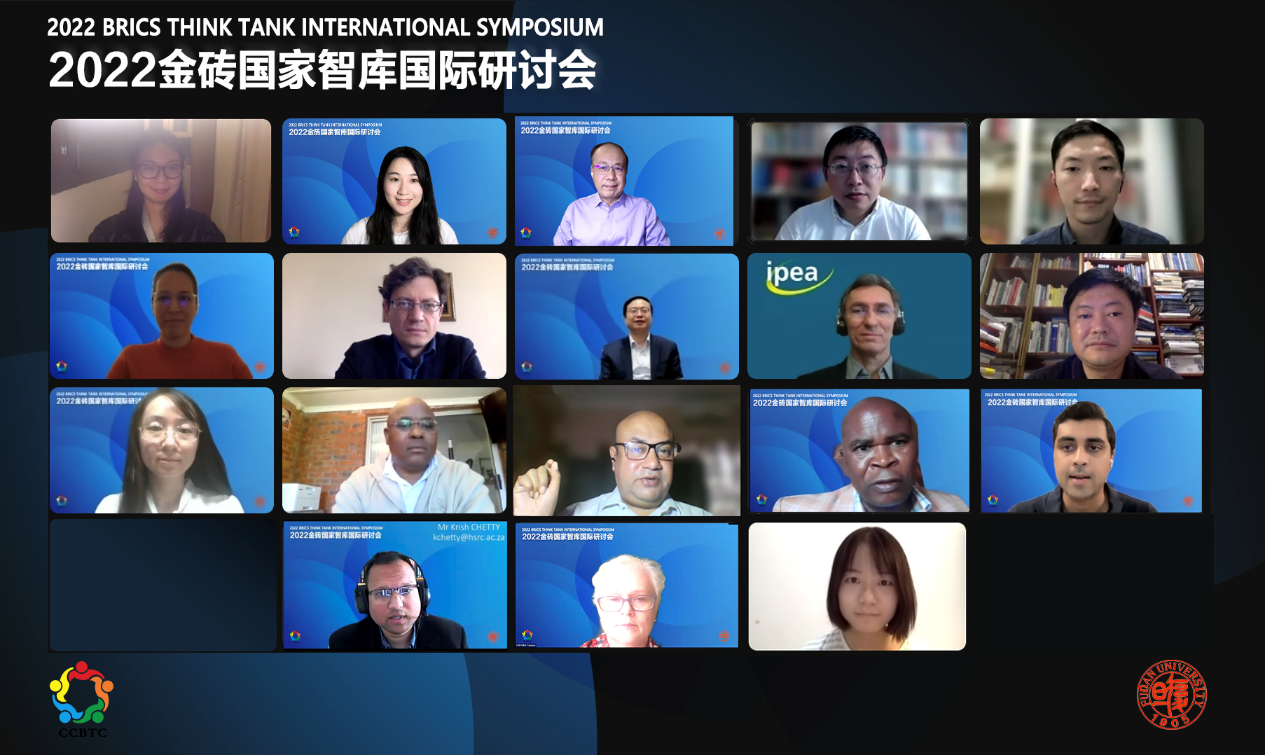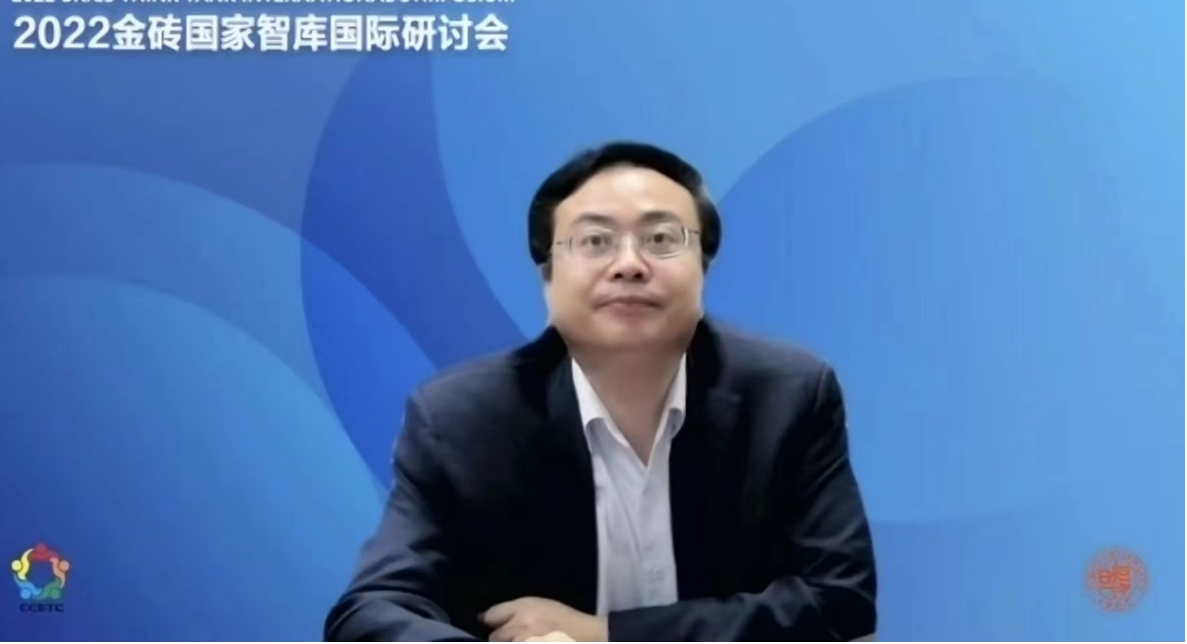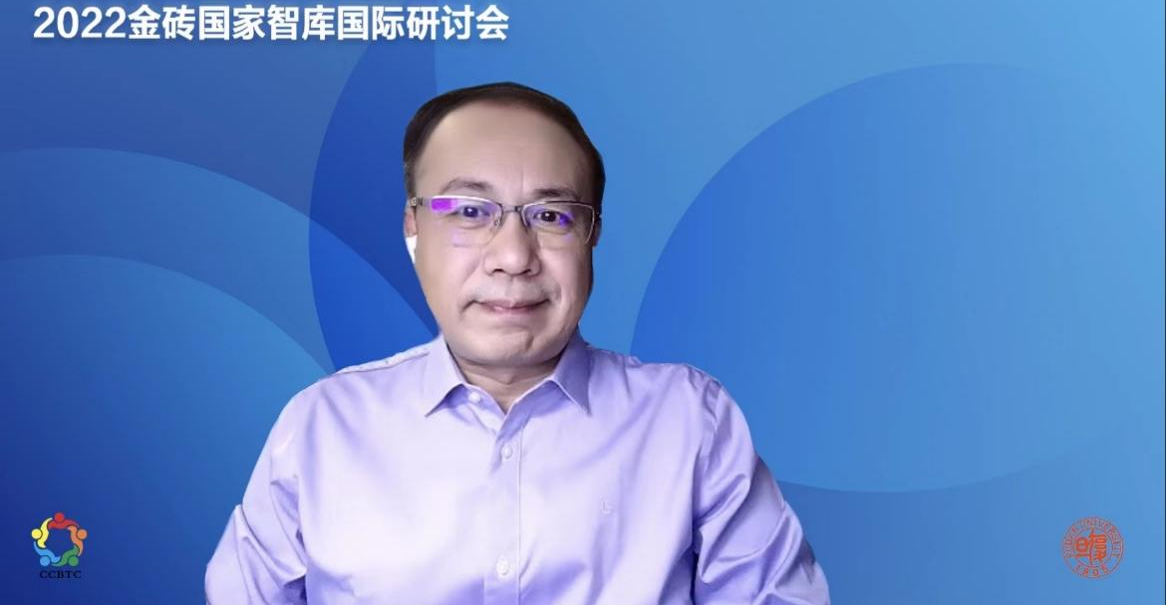Third 2022 BRICS Think Tank Symposium Held

On September 15, 2022, the third BRICS Think Tank International Symposium was held online. With the theme as “Challenges and Paths for BRICS Countries to Deepen Global Governance Cooperation in the New Era”, the symposium was hosted by China Council for BRICS Think-tank Cooperation(CCBTC), the Chinese coordinator for BRICS think tank cooperation, and organized by Center for BRICS Studies, Fudan Development Institute, a member of CCBTC. Scholars from BRICS countries carried out in-depth exchanges and discussions under the theme.

The symposium was chaired by Professor Shen Yi, Director of the Center for BRICS Studies, Fudan Development Institute. Jin Xin, Secretary General of CCBTC and Director General of Research Office of the International Department, Central Committee of CPC, and Chen Zhimin, Vice President of Fudan University delivered speeches respectively. Jin Xin said that at present, the world has entered a new period of volatility and transformation. With lingering COVID-19 pandemic, complex and volatile international situation and profound adjustments in the international balance of power, the status and role of BRICS cooperation in global governance is ever more prominent. From the perspective of peace and security, BRICS cooperation is important in safeguarding world peace and justice. From the perspective of economic development, BRICS cooperation provides major driving forces for world development and prosperity. To foster high-quality Partnership among BRICS countries and promote common development in the new era: first, we should honor the principle of openness and inclusiveness and practice true multilateralism; second, we should uphold cooperation to boost development, earnestly implement the Strategy for BRICS Economic Partnership 2025; third, we should uphold innovation as the driver of growth and jointly establish Digital BRICS.

Professor Chen Zhimin said that Fudan University, as a member of CCBTC, has been committed to promoting cooperation and construction in all aspects of BRICS countries. In charge of the operation of the secretariat of BRICS Universities League, Fudan University constantly works to strengthen institutions and has achieved gratifying results in bilateral and multilateral cooperation. In training students, the BRICS Summer School has received wide attention and good reputation, and has become a model of multilateral cooperation in the field of education among BRICS countries. In terms of research capabilities, the Center for BRICS Studies of Fudan Development Institute, as the first comprehensive BRICS research institution in China has always been committed to promoting strategic decision-making, cooperation and sustainable development of BRICS countries and other emerging economies.
Liu Hongsong, a professor of Shanghai Jiaotong University, Jiang Tianjiao, an associate professor of Fudan Development Institute and other Chinese university representatives believe that digital transformation proves to be a major path for BRICS countries to achieve economic recovery and sustainable and high-quality development. BRICS countries should first carry out in-depth cooperation in digital infrastructure. Second, it is necessary to optimize and upgrade the digital ecosystem to ensure the security of data asset transmission. In the future, BRICS countries could strengthen coordination and cooperation under the framework of G20.
Scholars from Brazilian Institute for Applied Economic Research, Russian Valdai Discussion Club, MGIMO University, O.P. Jindal Global University, Indian Observer Research Foundation, India Esya Center, Nelson Mandela University, University of Venda, Sciences Research Council and other think tanks believe that BRICS countries have achieved sound development in establishing global governance and global order, including setting up New Development Bank. To deepen global governance cooperation, BRICS countries need to further promote transformation in fields like climate change, energy security, food security and digital economy. Therefore, on the one hand, BRICS countries should share resources, work together in the development and cooperation of new energy, especially hydrogen energy, promote green and low-carbon development, and jointly implement the 2030 Agenda for Sustainable Development. On the other hand, BRICS countries should make use of digitalization to transform development paradigms, eliminate differences and gaps in digitalization, and jointly formulate digitalization standards and detailed rules to achieve high-quality development of digital economy.
(Source:International Department, Central Committee of CPC)